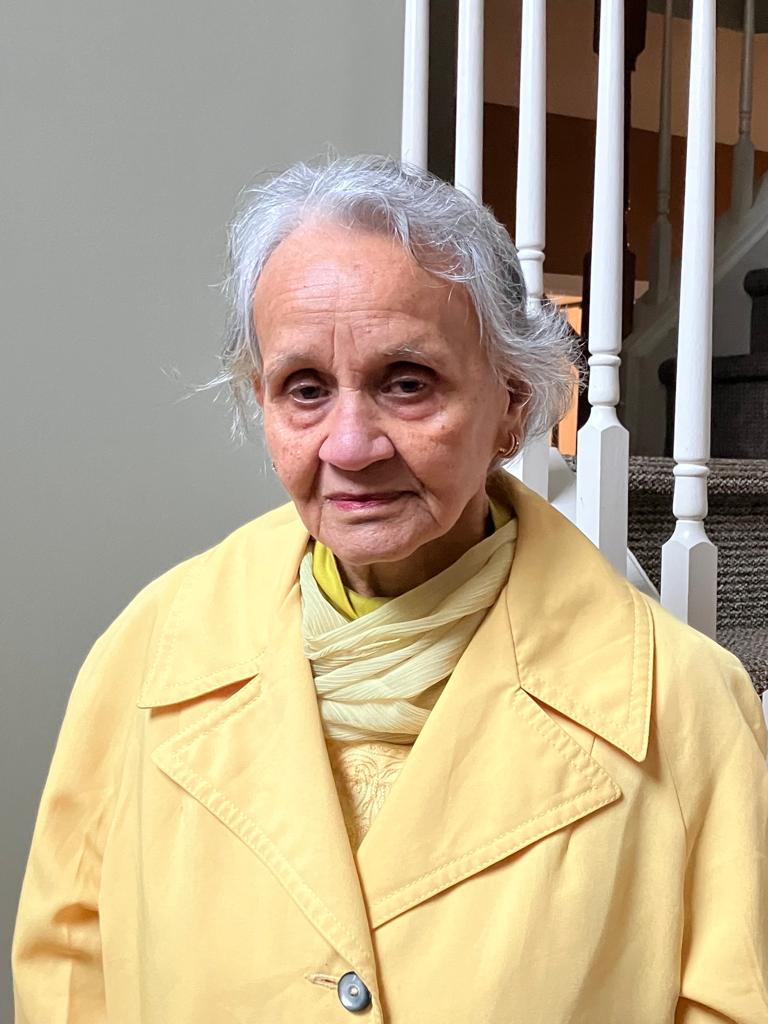A Successful Woman
What is success? Is it a subjective feeling of contentment with a job well done? A target achieved and a goal reached after overcoming obstacles? Or is it an evaluation by others, based on certain accepted benchmarks? Is it achievable at every little milestone of life? Or is it a lifetime achievement award, to be received at the very end? What is the measure of success? How much money, power or fame are required before we acknowledge a person as successful? What follows is a narrative of a true incident and also attempts to answer some of these questions.
I met Indu during my last visit to Imphal. There was a wedding in the family and all of us had gathered there from all over the country. Most Manipuri women efficiently and confidently straddle the outside world, where they work for a living, and a home, which they manage like all housewives all over the world. This ‘outside’ may be an office, a shop or even a stall in the famous Ima market ( the only all women market in the country and probably in the world) or have their own little enterprise.
My sister in law (SIL) heads a Central Government Institution in Imphal and like most working women also manages her family with equal aplomb. Although she, like most Manipuri women, is an eminently deserving candidate, this story is not about her. It is about Indu.

Normally my SIL does not take any outside help to run her household, even when we stay with them during our visits to Imphal. One important reason may be that Manipuris are an egalitarian society. The peaks of obscene wealth and troughs of abject poverty are not seen there unlike in most parts of our country. In our metropolises we are used to the sight of beggars living on the streets just outside five star hotels and posh establishments. We tip at least ten percent of the bill, which may be a couple of thousand rupees, to the waiter in a fancy restaurant but somehow become immune to human suffering as we step out of those magnificent portals.
In Manipur there is no concept of a domestic servant. We euphemistically use phrases like staff or domestic assistant, depending on the sensitivity levels of the employer, but most of us employ people to do our housework in return for monetary considerations. In Manipur, this concept is not much prevalent. Instead there is community support during any emergencies.
Secondly, as I said before, my SIL is a competent organiser and manages both office and home with equanimity and confidence. But this time there were official as well as personal reasons for her to desperately seek outside help. Either she searched really hard or got lucky, either way she was able to secure Indu’s help for the whole one week of our stay there.
My SIL, worried that I should not even unintentionally hurt Indu’s feelings, briefed me well. “Didi! Indu is not really a servant. She is a paramedic and is coming to help me out.”
She need not have worried. My father with his Gandhian ways and my mother with her love for the Gita and a firm belief in the equality and sameness of all human beings, being part of the same Supreme Consciousness, had drilled into my head since early childhood that I had to be super civil with domestic staff and class IV office employees.
Upon arrival, our family members there welcomed us, as usual, with a fire ritual. A small fire is lit and anyone coming from another city is expected to cross over it; a simple yet effective mechanism to ward off any infection or bad germs.
We had barely settled down with my SIL’s special and highly aromatic lemongrass tea when Indu entered the compound on her two wheeler. We are not exactly used to seeing our ‘kaamwalis’ coming on two wheelers. Dressed in a simple Phanek (Manipuri wrap around long skirt) and an inifi (upper stole), she seemed like any middle class Manipuri housewife. Wheatish complexion, round face with Mongoloid eyes and a pleasant smile. What struck me about her was her quiet and confident demeanour so typical of Manipuri women in general.

When I say Manipuri, I primarily mean the Meiteis, who are Vaishnavites and are settled in the Imphal valley although there are tribes like Nagas and Kukis who inhabit the hills. They have different dress codes, religion (most are converted Christians), cuisine, language and culture. I am more familiar with Meiteis being married into one such family, which traces its lineage from Maharaja Narsing of Manipur.
The reason behind the empowerment of Manipuri women, which reflects in their personality and aura is historical. For centuries the Manipuri men had to wage wars with the neighbouring kingdoms of Myanmar and others. Women were left behind to manage agriculture, trade and all internal affairs. They became the backbone of the economy. These women farmed lands, made cloth at home on looms – each house had a loom, reared fish and traded in the markets. The famous and unique Ima market in Imphal has some ten thousand stalls all ‘manned’ by women. As mentioned before, I have not seen anything like this anywhere in the world.
Coming back to Indu, she was definitely a far cry from our regular ‘bais’ coming part time to wash our pots and pans, sweep and mop our floors etc. She took charge of the entire household completely. We had a busy schedule and had at least three major functions to attend apart from meeting close relatives and friends. Some of them would not be attending the wedding due to advanced age, ill health or some other pressing personal reason. Every time we go to Manipur, we make it a point to visit them and they too look forward to meeting with us.
Indu performed all her duties cheerfully. But my interaction with her was rather limited. My knowledge of Manipuri leaves much to be desired and Indu could speak only broken Hindi. So, it was mostly limited to her wishing me upon arrival and then giving broad smiles whenever we crossed paths.
One week flew by. Soon the day for our departure came. We had some time in our hands before leaving for the airport. We were all sitting by the pink lily pond facing the ‘Pakhamba’ shrine. Every Hindu Meitei home has a ‘Sanamahi’ corner at home. The financially affluent, with larger plots of land and houses, have a ‘Pakhamba’ shrine; the size and ornamentation varies depending on the socio – economic status of the family. The Meiteis of Manipur embraced Chaitanya Mahaprabhu’s cult of Vaishnavism some three hundred years ago but most also seamlessly assimilated beliefs and rituals from their native ‘Sanamahi’ faith. ‘Pakhmaba’ is the most powerful deity in ‘Sanamahi’ faith and having a shrine of Pakhamba in each house is a part of that tradition.

In my brother-in-law’s house the magnificent ‘Pakhamba’ shrine faces a beautiful pond full of pink lilies and is surrounded by beautiful flowering plants and orchids. This place is my personal favourite being the most picturesque and relaxing spot.

We were chatting animatedly when Indu came carrying a tray of aromatic lemongrass tea. Having interpreters around I felt encouraged to find out more about this pleasant and efficient person. We began talking. I was in for a number of pleasant surprises. It transpired that Indu’s only child – a daughter- was doing her graduation from a prestigious college in Delhi. Indu was justifiably very proud of her daughter and was managing all her expenses on education, boarding and lodging – certainly a no mean task. Indu’s husband had tried his hands at various odd jobs but was not successful in any of those. So, Indu decided to have him ‘self employed’. Her dream was to somehow save Rs.50,000/- to buy a second hand small pick up van for her husband so he could earn some money transporting goods. Using a motherly tone, she said sweetly that she wanted to ‘settle’ him down. “So, how much have you been able to save?”, I asked curiously. “Well! I am almost there. I have also located the pickup van for him. We should be able to buy it next week”, Indu replied cheerfully.
I was looking at this simple woman with admiration and amazement. She had set specific goals for her family and by the dint of her sheer hard work, she had achieved those. Wasn’t she a highly successful woman?
As I gave her the customary tip before departing, there was a new esteem and affection in my eyes for her. I went upstairs to find a gift envelope and put an enhanced amount inside. It was no longer a tip to a domestic staff but a gift to a proud and successful woman.
“Please come again more often”, Indu said with genuine affection as we bid a fond goodbye to each other.

Neerja Rajkumar IAS (Retd),
Former Chief Secretary,
Government of Karnataka




